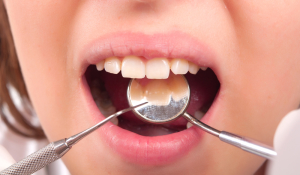How to Keep Your Gums Healthy

When it comes to dental hygiene and oral health, most people only focus on the teeth. This is understandable because the teeth are the most visible parts of your mouth, and they seem like they get the most attention. While taking care of your teeth is certainly part of maintaining your overall dental hygiene, your gums also need just as much attention from you.
Gum disease is a serious oral health condition that affects many people today. This condition can range from mild to severe, starting with simple inflammation of the gums to more serious disease which can result in damage to the soft tissue and bones that support your teeth. Eventually, if your gum disease is not properly treated, you can lose your teeth.
What You Can Do
The first line of defense against gum disease is prevention. It’s better that gum disease never even starts in your mouth because then you won’t have to treat it. So, what are some of the ways you can prevent gum disease from taking hold of your pearly whites? Here are some of the most common methods:
- Brush: Brushing your teeth is the most basic of dental hygiene techniques, but it’s also one of the most important. While it’s important to brush the surfaces of your teeth for at least two minutes every morning and night, it’s equally as important to brush around your gum line. This reduces the amount of bacteria living in those areas, lessening the chance that the bacteria will turn to tartar.
- Floss: Like brushing, flossing is something you should be doing every day. Make sure you are cleaning between your teeth at least once a day in order to achieve the same effect for the spaces in between your teeth as brushing accomplishes on the surface. Food that is lodged between your teeth can, and will, turn into tartar.
- Rinse: Using antiseptic mouthwash cleans up the loose bits that brushing and flossing may have missed. It can also reduce the amount of bacteria in your mouth overall, helping you avoid the development of plaque and tartar on your teeth. Make sure you are rinsing with mouthwash at least twice a day to maximize the effect.
What Your Dentist Can Do
Normal dental hygiene techniques are the best lines of defense against gum disease, but there will always be things that you miss in your mouth. This isn’t your fault. There are just places in your mouth that are ultimately too hard to reach all the time. This is why it’s important for you to visit your dentist at least twice a year.
Your dentist will be able to clean any persisting plaque and tartar hanging around in your mouth, but he or she will also be able to identify gum disease in its early stages. If you are suffering from gum disease, it’s best to have it identified early on, so treatments aren’t as extensive or expensive.
Better Safe than Sorry
If you’re worried about gum disease, it’s better to be safe than sorry. Don’t wait to see the dentist if you’re experiencing regular bleeding or consistent pain in your gums. These may be signs of gum disease, and it’s best to get it treated right away. Waiting too long may mean longer treatments to get rid of the problem.
